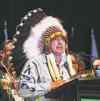Hard times ahead for Bellegarde
Advertisement
Read this article for free:
or
Already have an account? Log in here »
To continue reading, please subscribe:
Monthly Digital Subscription
$1 per week for 24 weeks*
- Enjoy unlimited reading on winnipegfreepress.com
- Read the E-Edition, our digital replica newspaper
- Access News Break, our award-winning app
- Play interactive puzzles
*Billed as $4.00 plus GST every four weeks. After 24 weeks, price increases to the regular rate of $19.00 plus GST every four weeks. Offer available to new and qualified returning subscribers only. Cancel any time.
Monthly Digital Subscription
$4.75/week*
- Enjoy unlimited reading on winnipegfreepress.com
- Read the E-Edition, our digital replica newspaper
- Access News Break, our award-winning app
- Play interactive puzzles
*Billed as $19 plus GST every four weeks. Cancel any time.
To continue reading, please subscribe:
Add Free Press access to your Brandon Sun subscription for only an additional
$1 for the first 4 weeks*
*Your next subscription payment will increase by $1.00 and you will be charged $16.99 plus GST for four weeks. After four weeks, your payment will increase to $23.99 plus GST every four weeks.
Read unlimited articles for free today:
or
Already have an account? Log in here »
Hey there, time traveller!
This article was published 11/12/2014 (3962 days ago), so information in it may no longer be current.
Could Perry Bellegarde be the last national chief of the Assembly of First Nations?
Notwithstanding the quiet elegance of the blanket ceremony, the stirring celebratory songs and drumming and the dignified, triumphant procession by the grand chief through the convention centre hall Wednesday afternoon, there was no escaping the fact Bellegarde has inherited an organization on the brink.
Following the sudden resignation of former grand chief Shawn Atleo in May, the AFN has been gripped by conflict and uncertainty. This has caused many aboriginal leaders and activists to question the relevance of the organization.
Still, full of adrenaline from his definitive election win, Bellegarde could only see the AFN glass as half-full.
“I don’t believe the AFN is divided,” he told reporters. “I don’t think it is irrelevant.”
Bellegarde’s convincing optimism aside, there were troubling signs at this week’s event in Winnipeg that speak to a less positive view. Many observers have already commented on the lack of candidates in the race, down to three from eight in 2011. But there were also considerably fewer chiefs in attendance.
In 2012, 540 chiefs voted in the election for grand chief. In this election, the number of chiefs and proxies was reduced to 464. That means more than a quarter of the 634 First Nations and bands failed to send their chief or a proxy to participate.
In these divisive times, respect for the AFN is not automatic anymore. Assembly of Manitoba Chiefs Grand Chief Derek Nepinak did not attend the AFN special assembly, as he was concerned the organization had lost the moral authority to represent First Nations. He has thrown his considerable and growing national profile behind a rival organization, the Treaty Alliance.
Even the activists involved in the much-publicized Idle No More movement, whose activism garnered international attention, have cast doubt on the relevance of the AFN. Where does a leader such as Bellegarde start addressing skepticism like that?
Many of the AFN’s critics believe the organization must regain contact with, and respect for, the aboriginal “grassroots.” As it is in non-aboriginal politics, this is a term never fully explained, although most observers take it to mean ordinary aboriginal people, whether they live on or off reserve.
Few of those critics have adequately defined what it is they want the AFN to do for the grassroots. Surely no one expects a national chief to seek consensus with the grassroots.
What then is Bellegarde supposed to do?
Some have suggested the national chief should be elected by aboriginal people, and not by the chiefs. That is a suggestion Bellegarde does not support.
Bellegarde said the election of a national chief on a one-member, one-vote basis would destabilize the chief and council system. He said the AFN is neither equipped nor inclined to take on the role of a national government.
“We’re just not there yet,” he told reporters.
A new relationship with individual aboriginal people can be achieved, Bellegarde argued, by better communicating the work done by the AFN, and with more effort at getting more people living on reserve involved in AFN initiatives.
To ensure the AFN remains a political force, Bellegarde needs a quick victory. But what kind of victory and which issue?
The AFN is an organization that in many ways cannot agree on what constitutes a victory. There have been moments of unity of course, but they are very few and far between in the AFN’s history.
Add to that the reality the current federal government is not predisposed to giving any aboriginal leader a clean win.
In fact, in the immediate wake of the AFN election, Ottawa was rushing to make sure everyone knew the change in leadership would not affect the policy direction of the Conservative government.
In a news release Wednesday, federal Indian Affairs Minister Bernard Valcourt congratulated Bellegarde and then offered a long list of Tory bills introduced over the last eight years, many of which have been thorns in the side of aboriginal leadership.
Given the fact Atleo’s political career came to a crashing halt after appearing with Prime Minister Stephen Harper to endorse a federal aboriginal education initiative, we can assume Valcourt has a good sense of humour.
Bellegarde hardly blinked. He told reporters he expects to meet soon with Harper to discuss ways to get the dialogue back on track.
In contrast to the position of some of his challengers, who advocated for a cessation of all negotiations with Ottawa, Bellegarde said he will continue to meet with federal officials. He said this even as he acknowledged this approach was ultimately Atleo’s undoing.
“You have to keep bringing people to the table,” Bellegarde said. “You can’t stay on the outside… We’re all in this together.”
dan.lett@freepress.mb.ca

Dan Lett is a columnist for the Free Press, providing opinion and commentary on politics in Winnipeg and beyond. Born and raised in Toronto, Dan joined the Free Press in 1986. Read more about Dan.
Dan’s columns are built on facts and reactions, but offer his personal views through arguments and analysis. The Free Press’ editing team reviews Dan’s columns before they are posted online or published in print — part of the our tradition, since 1872, of producing reliable independent journalism. Read more about Free Press’s history and mandate, and learn how our newsroom operates.
Our newsroom depends on a growing audience of readers to power our journalism. If you are not a paid reader, please consider becoming a subscriber.
Our newsroom depends on its audience of readers to power our journalism. Thank you for your support.



